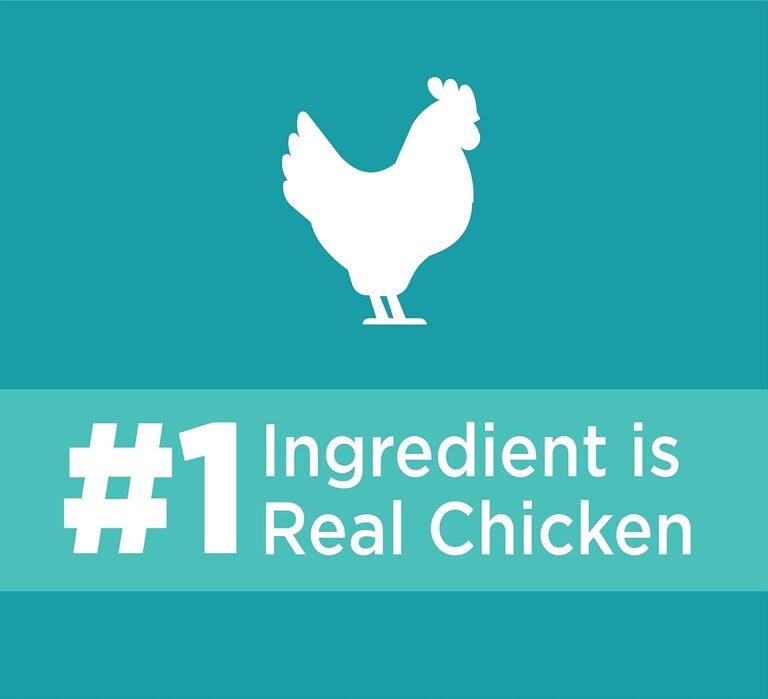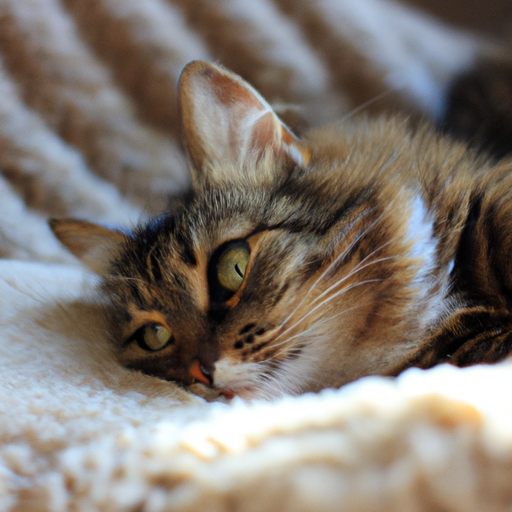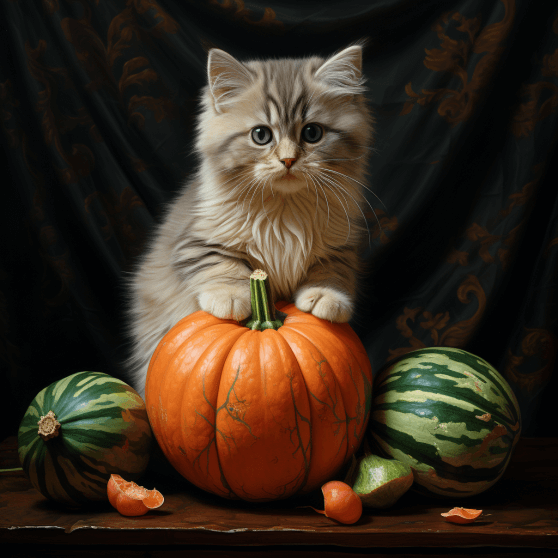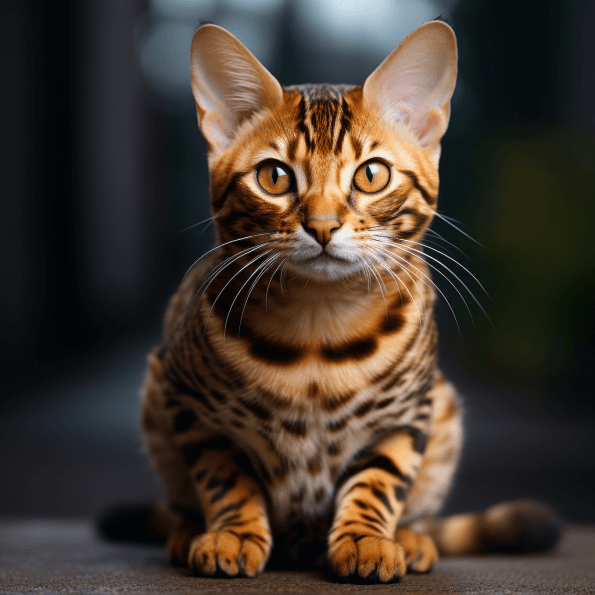How Long Can Cats Go Without Food?
Whether you’re a first-time feline parent or a seasoned cat owner, knowing the needs of your furry friend is crucial for their wellbeing. The product, “How Long Can Cats Go Without Food”, provides comprehensive insights about the dietary needs and habits of cats. It’s filled with expert advice, shedding light on the length of time cats can survive without food and the potential health risks involved. It’s an essential resource to help you keep your beloved pet healthy and happy.
Understanding Cats’ Nutritional Needs
Whether you’re a new cat owner or a seasoned cat parent, understanding your feline friend’s nutritional needs is vital for their health and wellbeing. So, saddle up because we’re about to explore some interesting facets of feline nutrition.
Why Cats Need a Regular Food Intake
Just like you, your cat needs food to keep their body functioning. When your cat eats, their body draws essential nutrients from the food. These nutrients are then used to boost your cat’s immune system, repair body tissues, and ensure their organs function optimally. Without regular food intake, a cat’s body will, over time, wear down and become incapable of maintaining its vital processes.
Importance of Different Nutrients for Cats
Felines have specific nutritional needs that differ significantly from other animals such as dogs or humans. Cats require a variety of nutrients such as protein, carbohydrates, fats, vitamins, and minerals. Protein is particularly essential as it is a vital component of the cells, muscles, skin, fur, and even the immune system. Likewise, fats not only provide energy but also help absorb vital vitamins. Speaking of vitamins, your cat needs a dose of various types, each playing unique roles in their health.
Physical Analysis: How a Cat’s Body Uses Food
A cat’s body processes food in a fascinating way. When your cat eats its meal, it’s ingested and broken down in the stomach. The nutrients are then absorbed into the cat’s bloodstream. From the bloodstream, these nutrients are carried to individual cells where they play their respective roles. Anything that’s not utilized is stored or excreted.
How Long Can Cats Go Without Food
Typical Duration Cats Can Survive Without Food
How long can cats go without food? Typically, cats can survive about two weeks without food. But remember, this is a rough estimate and varies greatly based on a cat’s health, age, and metabolic rate.
How Fast Can Dehydration Occur?
While cats can live without food for a certain period, they cannot go long without water. Dehydration can set in quickly, usually within a few days, and can be life-threatening.
Role of Body Size, Age, and Health Status
The body size, age, and health of your cat play a fundamental role in how long they can survive without food. Smaller, older, or unhealthy cats will be less resilient and succumb to the detrimental effects of starvation much quicker than their healthier, younger counterparts.
Physical Effects of Food Deprivation in Cats
Initial Symptoms of Starvation
Symptoms of starvation in cats tend to manifest gradually. You may notice your cat beginning to lose weight, becoming lethargic, and refusing to eat.
Physical Changes in a Cat’s Body Due to Starvation
As food deprivation persists, you’ll observe more glaring physical changes. Your cat’s fur may lose its shiny, healthy appearance and become dull. They may develop dry skin, display muscle wasting, and appear generally weak.
Development of Liver Disease: Feline Hepatic Lipidosis
When a cat starves, the body begins to break down stored fats for energy. This process, if left unchecked, may overwhelm the liver and lead to a lethal condition known as Feline Hepatic Lipidosis or “fatty liver disease.”
Behavioral Changes Due to Starvation
Changes in a Cat’s Behavior Due to Hunger
If your cat is constantly hungry, their behavior may change drastically. You might observe increased aggression or highly abnormal behavior like eating things they usually wouldn’t, like plants or paper.
Possible Signs of Discomfort and Agitation
A lack of food may lead to signs of discomfort and agitation in your cat. They may become unusually withdrawn or over-affectionate.
Effect on Interaction with Humans and Other Pets
Starvation can also affect a cat’s interaction with humans and other pets. They might withdraw from social activities, become unusually clingy, or even show aggression when they are usually gentle.
Health Risks of Continuous Food Deprivation
Overview of Potential Health Risks
Prolonged periods of food deprivation can result in severe health risks for your cat. These range from seemingly minor effects like fatigue and dull coat to life-threatening issues like organ failure and death.
Deteriorating Health and Potential for Developing Diseases
Continuous food deprivation can cause drastic deterioration in your cat’s health. They may become prone to illnesses, infections, and diseases due to compromised immune function.
Possible Irreversible Damage
Severe malnutrition can lead to irreversible damage like blindness or serious organ damage. These situations often necessitate lifelong treatment and drastically decreased quality of life for your cat.
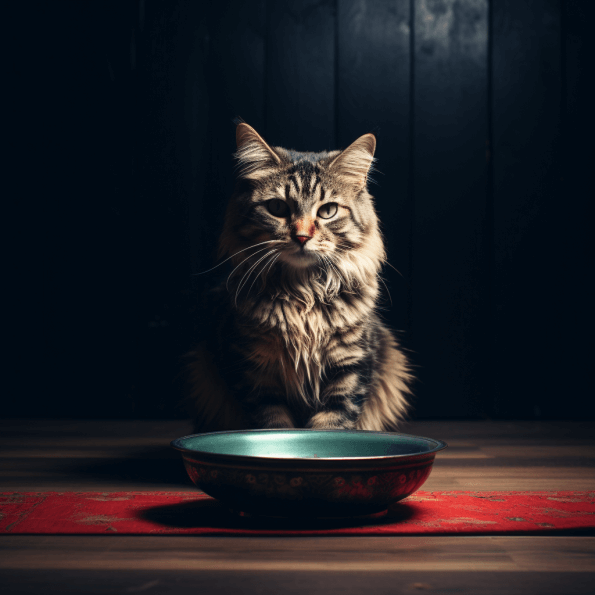
What to Do If Your Cat Is Not Eating
Steps to Take When Your Cat Refuses Food
If your cat refuses to eat, try changing their food, making the surroundings comfortable and quiet during meal times. Also, observe for changes in behavior, stool, or physical appearance.
When to Contact a Veterinarian
If your cat’s refusal to eat persists beyond a day or two or is accompanied by other worrisome symptoms, it’s time to contact a veterinarian to rule out any health problems.
How and When to Use Appetite Stimulants
Appetite stimulants can sometimes be helpful in promoting eating, especially under a vet’s supervision. Do remember to use these wisely and only under professional advice to avoid any side effects.
Feeding Strategies for Unwell Cats
Different Ways to Encourage Food Intake
Encouraging a cat to eat often involves getting creative. You might try warming their food, offering a variety of taste and textures, or hand-feeding them.
Nutrient-Packed Meals for Sick Cats
For ill cats, it’s crucial to pack as many nutrients as possible into every bite they take. Choosing nutritional enhancements, or therapeutic diets as suggested by your vet, can go a long way.
Consideration for Force Feeding
Force-feeding should be a last resort and one undertaken with extreme caution and under veterinary advice. It can be stressful, potentially harmful, and counterproductive for the cat.
Common Reasons Cats Stop Eating
Different Illnesses That Cause Loss of Appetite
Many illnesses can cause cats to lose their appetite. These could be anything from dental problems or gastrointestinal issues to chronic conditions like kidney disease or cancer.
Role of Environmental Stress or Changes
Cats are creatures of habit, and changes in their environment or lifestyle can impact their eating habits. Unknown smells, new members in the house, or even a new brand of cat food can upset your cat’s routine.
Impact of Dental Health on Appetite
Often overlooked, dental health plays a significant role in a cat’s appetite. Dental pain or oral diseases may make eating painful, leading to your cat refusing food.
How to Prevent Prolonged Food Deprivation
Maintaining a Regular Feeding Schedule
Stick with a feeding routine. Cats are creatures of habit, and they appreciate knowing when their next meal will be served.
Choosing the Right Cat Food
Picking cat food that is nutritionally balanced and palatable for your cat can encourage them to eat regularly and ensure they get the necessary nutrients.
Understanding Your Cat’s Feeding Behavior
Take the time to understand your cat’s feeding habits. Do they prefer small meals frequently, or do they like to satiate their hunger all at once? What are their favorite flavors? Such observations can help prevent food refusal.
Emergency Care for Starving Cats
Emergency Treatments for Starvation
Emergency care for starving cats might involve hospitalization, IV fluids, and therapeutic feeding to ensure they replenish lost nutrients and fluids. Don’t attempt this at home without veterinary consultation.
Role of Veterinarian in Providing Critical Care Nutrition
Critical care nutrition is usually provided by the veterinarian to ensure the cat receives balanced nutrients and monitor its response to the diet.
Rehabilitation Process and Diet for Severely Malnourished Cats
The rehabilitation of severely malnourished cats involves careful feeding and frequent health check-ups, ensuring that the cat is gradually regaining strength and moving towards recovery.
Remember, taking care of your cat’s nutrition is one of the key aspects of being a responsible cat parent. Understanding their food preferences and needs will help them lead a healthy and fulfilling life.

